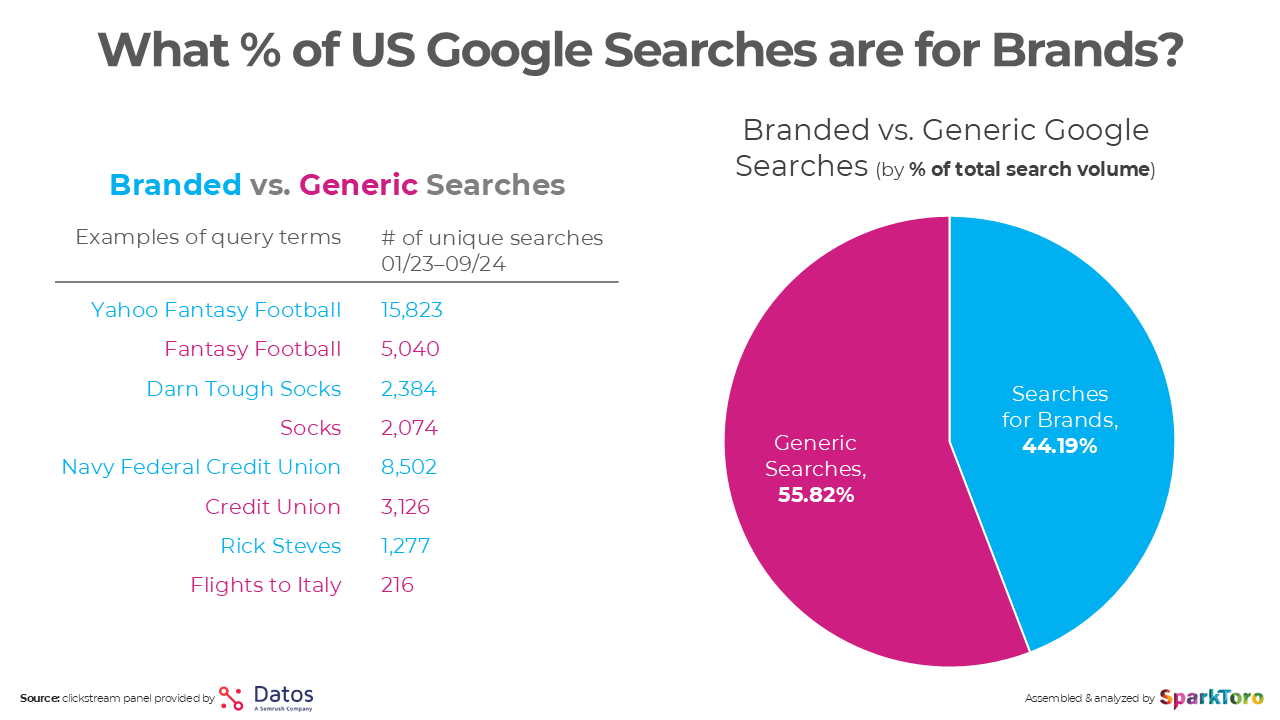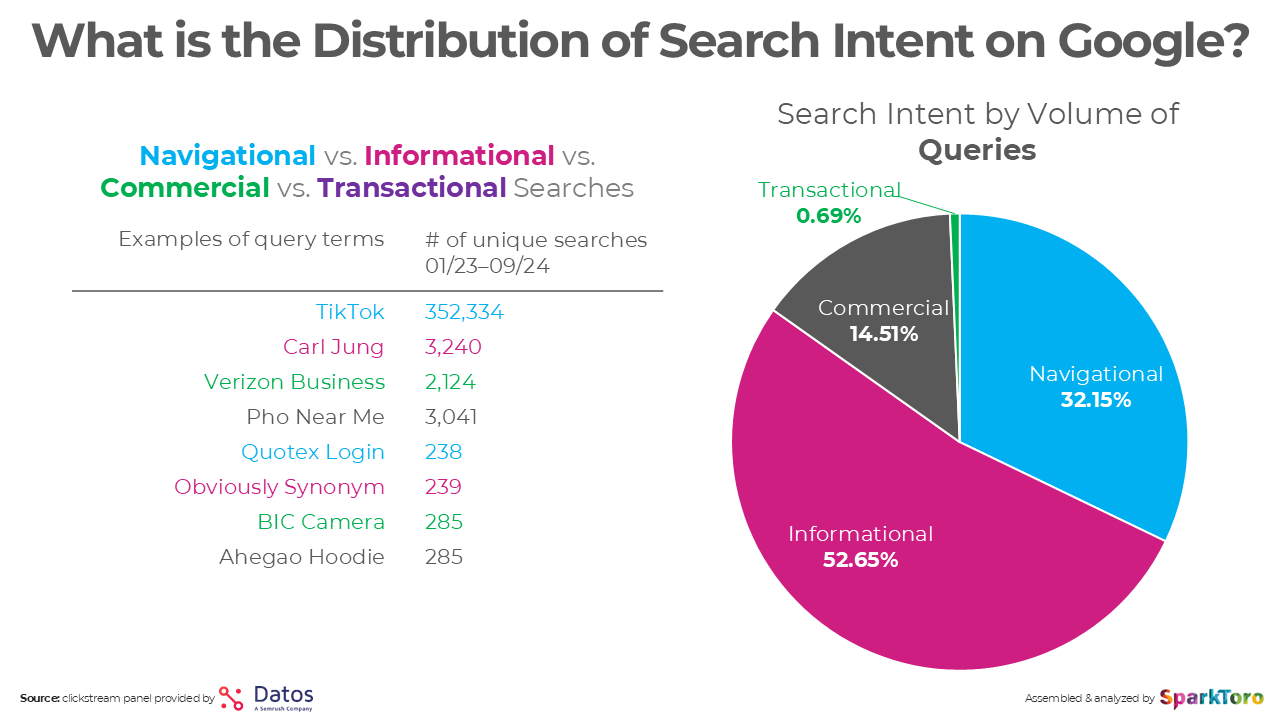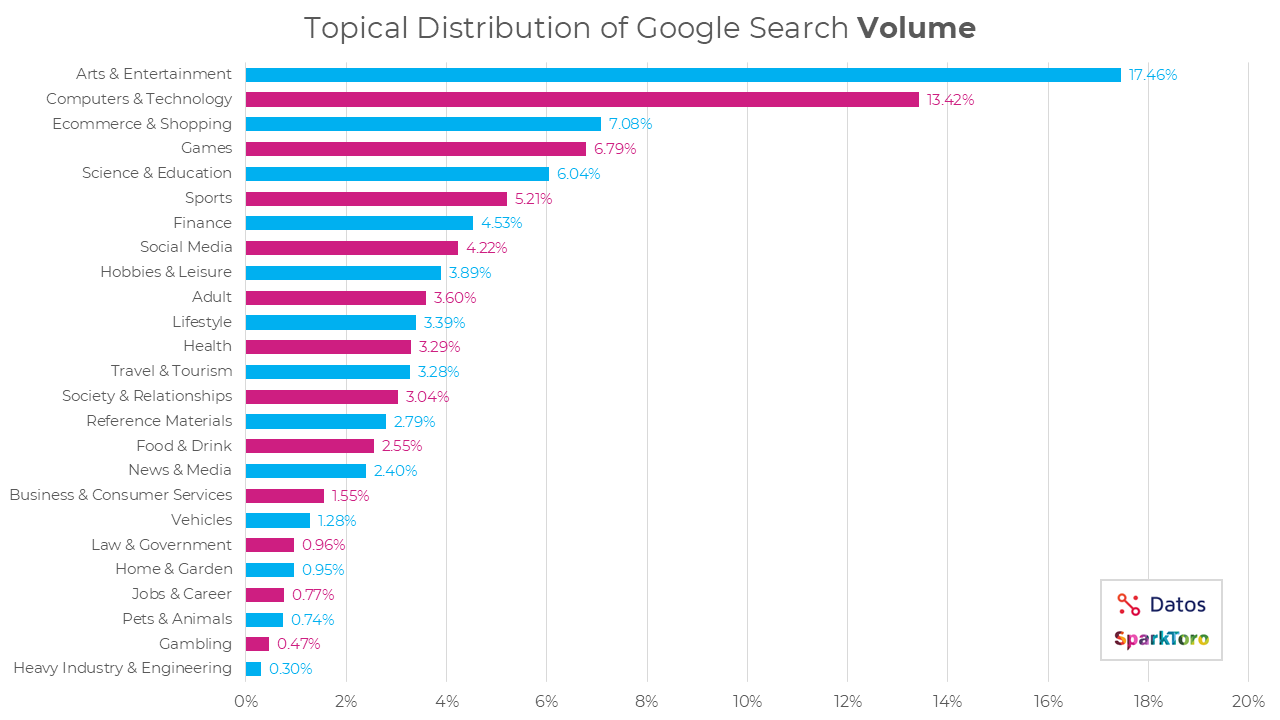Surprising data: 15% of Google searches are driven by only 148 terms
In other findings, 56% of Google searches are for generic terms and the long-tail accounts for just 3.6% of search demand.
A mere 148 keywords account for 15% of all Google searches.
That’s just one of many striking insights from a new analysis of nearly 332 million queries for more than 320,000 unique query terms released today by Rand Fishkin of SparkToro, based on data provided by Datos. (Disclosure: Datos, like Search Engine Land, is a Semrush company.)
Why we care. Organic search traffic appears to be increasingly going to fewer websites over time. In 2024, it is harder than ever to be visible and stand out in Google Search – especially if you often compete with Google’s AI Overviews and other search features.
The 148 terms. Most of them are navigational queries. Ten of the most searched terms are:
- YouTube
- Gmail
- Amazon
- ChatGPT
- Google Translate
- WhatsApp Web
- Google Maps
- Pornhub
- Google Docs
By the numbers. This analysis also classified Google searches by brand, intent, and topic:
- Branded vs. generic searches: 44% of Google searches are for branded terms, with the rest focused on unbranded, generic queries.

- Intent: 51% of searches are informational, 33% are navigational, 14.5% are commercial, and just 0.69% are transactional.

Here’s a screenshot of the topics:

What’s they’re saying. Just a few thousand query terms make up a quarter of all Google searches, and that seems to be increasing all the time, Fishkin wrote, adding:
- “Yes, there’s still a massive number of unique query terms, but the ‘Long Tail’ (<11 searches/month) is only 3.6% of demand. Monopolies are winning. Big brands and topics are winning. People are gravitating to a smaller number of less diverse destinations and ideas. Little wonder big companies and rich individuals are getting a larger and larger share of the economic and attention pie around the world.”
About the analysis. According to Fishkin:
- “Datos furnished us with Google search data from a subset of their multi-million person panel: ~130K US devices, mobile and desktop, who were actively using Google for 21 consecutive months: January 2023 – September 2024. For a variety of reasons, Datos limited the queries provided to only those with 100+ Google searches over the 21 month period (though we also have an analysis of all search keywords for a single month below).”
What it all means. Diversify. Your brand or business needs to be discoverable beyond Google Search – whether that’s on YouTube, TikTok, podcasts, LinkedIn or another relevant platform. You may be more likely to see rewards Google Search by capturing pre-existing intent versus hoping to be discovered.
What’s next. Marketers are being urged to diversify their strategies beyond SEO and PPC, as discovery increasingly shifts to platforms like social media, YouTube, and newsletters.
Read the analysis. New Research: We analyzed 332 million queries over 21 months to uncover never-before-published data on how people use Google
Rand Fishkin Q&A. Check out my new interview: Rand Fishkin on the SEO opportunity pie shrinking and more insights.
Related stories
New on Search Engine Land